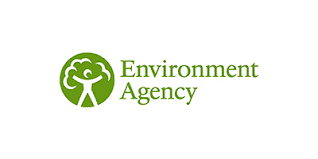The benefits of a good Environmental Policy
Today, because of the expectations of the general public there is a growing demand for companies to demonstrate a responsible approach to business.
An environmental policy should form the foundation of environmental improvements made for your business. The environmental policy can provide significant benefits to your business.
What is the Environmental Legislation?In the UK, the law sets out what employers and employees must do and there are penalties for failing to comply with environmental legislation.
- The EU Emissions Trading Scheme covers 31 countries. It limits the total amount of certain greenhouse gases that factories, power plants and airlines are allowed to emit, and lets companies buy, sell or trade their emission allowances.
- The Environmental Protection Act 1990 (as amended in 2008) and The Environment Act 1995 say that anyone who produces, handles or disposes of waste must make sure it’s done properly and safely. Businesses and households that don’t comply can be given fines or prison sentences.
- The Control of Pollution Act 1974 (and its 1989 Amendment) regulate waste transportation and disposal, water pollution, air pollution and noise pollution, with fines for non-compliance.
The Environment Agency was established in the UK in 1996 for England and Wales, to prevent and reduce environmental pollution, or minimise its impact, and help achieve sustainable development.
The Environmental Agency is responsible for regulating industrial waste management, water quality and the treatment of contaminated land. In Scotland this function is provided by The Scottish Environment Protection Agency.
this function is provided by The Scottish Environment Protection Agency.
There is a range of environment-related legislation in the UK.
- The Clean Air Act 1993 places legal limits and prohibitions on smoke, fumes, dust and grit coming from fireplaces or furnaces in homes or business properties. It also regulates the composition of fuels used in cars and other engines.
- The Water Resources Act 1991, Water Industry Act 1991, and Water Act 2003 regulate the supply, management, quality and pollution of water in the UK, as well as flood defences.
- The Wildlife and Countryside Act 1981 and the Natural Environment and Communities Act 2006 cover the protection of native wildlife, management of non-native species, and the conservation of nature reserves, sites of specific scientific interest, and other natural environments.
- The construction industry and changes to buildings are covered by Building Regulations and the Energy Performance of Buildings Directive, and by law all large construction projects in England must have a Site Waste Management Plan.
- The Waste Electronic and Electrical Equipment Regulations 2006, amended in 2009, covers the environmental performance of businesses that manufacture, supply, use, recycle and recover electrical equipment.
How to create an environmental policy statement for your small business
Creating an environmental policy provides the perfect opportunity to review your day-to-day activities and see if they are both environmentally responsible and meet legal requirements under the legislation listed above.
It also helps to keep employees informed of their environmental roles and responsibilities, lowers cost through reduced consumption and waste and helps save even more money by improving the efficiency of your processes.
As well as your companies own internal operations, demonstrating a commitment to environmental management, you can develop positive relations with external stakeholders, such as investors, insurers, customers, suppliers, regulators and the local community.
You never know, in an ever more challenging financial climate, your environmental credentials could be the difference between winning work with a new client, or not.
Of course, you must get your staff to put it into practice
Many businesses can and do simply produce an environmental policy simply to satisfy a tender requirement. But as demonstrated by the potential benefits mentioned above, this would be wasting a great opportunity.
For an environmental policy to have full affect, integration into the business is essential, as is buy-in from the top down. A way of improving general staff engagement is by incorporating environmental responsibility into staff inductions and job roles.
To help integrate the environmental policy into the day-to-day running of your start-up, include a review of the policy, where you review any progress and developments, within management meetings. Approaching your environmental performance just like any Key Performance Indicator (KPI) is the way to do things.
Bringing awareness and responsibility to your policy can be achieved by integrating any developments within any internal communications.
Creating your environmental policy
In simple terms, an environmental policy is a statement outlining your business’ environmental strategy and the driving force behind your objectives. It should include time-related targets and a measurable management programme, which should result in effective implementation.
Discuss your company’s operation with your team to highlight environmental issues. Ask yourself how your business’ existence and output affects the environment and what risks face it?
Although your organisation’s environmental policy should be formed by you and your senior team, it’s certainly worth including all staff at the ideas stage too.  After all, your staff are stakeholders in the organisation, including them may prove motivational, turning your policy into positive action.
After all, your staff are stakeholders in the organisation, including them may prove motivational, turning your policy into positive action.
There isn’t an agreed set layout on how you should write an environmental policy. The key is to have a policy that is both easy to understand and that clearly states your business aims and objectives, similar to a mission statement. It needn’t be longer than a couple of pages.
With many companies now looking to ISO14001: 2004 or even ISO 45001:2018 when they consider placing companies on to their supply chain. Perhaps it would be a good move to try to obtain policies from key customers so your statements can reflect their requirements.
An effective environmental policy allows your senior team to communicate its aims and objectives to employees, shareholders, customers, suppliers and other stakeholders. All goals should be measurable, realistic and have accountable actions with deadlines.
Your policy should outline:
- Your business’ mission and information about its operations.
- A commitment to continually improve and monitor environmental performance.
- A commitment to managing your environmental impacts.
- Your compliance with relevant environmental legislation.
- Your expectations from suppliers and sub-contractors.
- A commitment to employee awareness and training.
Your policy could be categorised by different business activities, for example:
Furniture and fittings
- Do these have to be new items or can you purchase recycled or refurbished items?
Paper
- Can you minimise the use of paper in the office?
- Reduce packaging as much as possible.
- Seek to buy recycled and recyclable paper products.
- Perhaps you could reuse and recycle all paper where possible.
Office Equipment
- Evaluate if the need can be met in another way.
- See if renting/sharing is an option before purchasing equipment.
- Consider the environmental impact of any new products you intend to purchase.
- Favour more environmentally friendly and efficient products wherever possible.
- Reuse and recycle everything you are able to
Transportation
- Try to reduce the need to travel, restricting to necessity trips only.
- Promote the use of travel alternatives such as e-mail or video/phone conferencing.
- Use public transport in preference to travel by car wherever it is possible and effective to do so.
- Look into ‘green’ vehicles and maintain them rigorously to ensure ongoing efficiency.
Energy usage (incl. water)
- Seek to reduce the amount of energy used as much as possible.
- Lights and electrical equipment will be switched off when not in use.
- Heating will be adjusted with energy consumption in mind.
- The energy consumption and efficiency of new products will be taken into account when purchasing.
Maintenance and cleaning
- Cleaning materials used will be as environmentally friendly as possible.
- Materials used in office refurbishment will be as environmentally friendly as possible.
- Only use licensed and appropriate organisations to dispose of waste.
Monitoring and improvement
- Ensure you comply with and exceed all relevant regulatory requirements.
- Continually improve and monitor environmental performance.
- Improve and reduce environmental impacts.
- Incorporate environmental factors into business decisions.
- Increase employee awareness through training.
- Review your policy and any related business issues at management meetings.
Culture
- Involve staff in the implementation of this policy, for greater commitment and improved performance.
- Update this policy at least once annually in consultation with staff where necessary.
- Provide staff with relevant environmental training.
- Work with suppliers, contractors and sub-contractors to improve their environmental performance.
- Use local labour and materials where available to reduce CO2 and help the community.
Once your environmental policy has been finalised you should make sure it’s visible to all staff.
Influencing others
All businesses have suppliers. You can use your influence to encourage suppliers and contractors to uphold similar environmental standards; you may even want to make it a requirement to do business with you.
Large customers are considering the environmental credentials of firms they do business with more and more nowadays. So, having a good Environmental Policy could make the difference between winning or losing a contract.
If you would like any further help or support, please please contact us by phone 01458 253682, email or via our Facebook page or by Twitter.
Taunton & Somerset CPD Group at The Exchange House Taunton
Please remember that we now run these CPD events at the Exchange House, 12 – 14 The Crescent, Taunton TA1 4EB on a fortnightly basis
As previously requested, if you could let us know whether or not you can attend it would be greatly appreciated. Also, if you would like to give a talk, or know of somebody who would, please contact Jon.
Our next Seminar will be on Wednesday 24th October 2018. Could you please arrive by 12:30pm prompt.
Our speaker for this one is Richard McMullan from Kinley Ltd with their recently updated RIBA approved CPD entitled “Roof Terrace and Podium Construction”.
If you haven’t already booked your place, or if you are not on the CPD Seminar mailing list but would like to be please drop Jon an email and he will deal with your request.
As per our last one if you could let Jon know whether or not you can attend within 7 days of receipt of his email, it would be greatly appreciated.
Contact Details: [email protected], 07831 714199 or 01458 253682
*Early notice of 7th November meeting. Adrian Stanton of Wetherby Building Systems will talk about “External Wall Insulation” Please note that this is a change of speaker & topic to the one previously advertised for 7th November.
